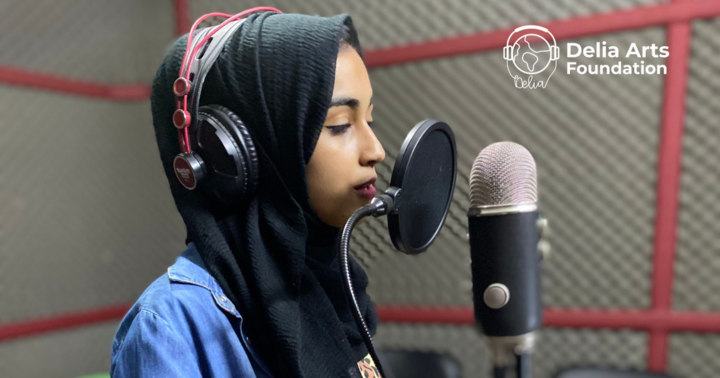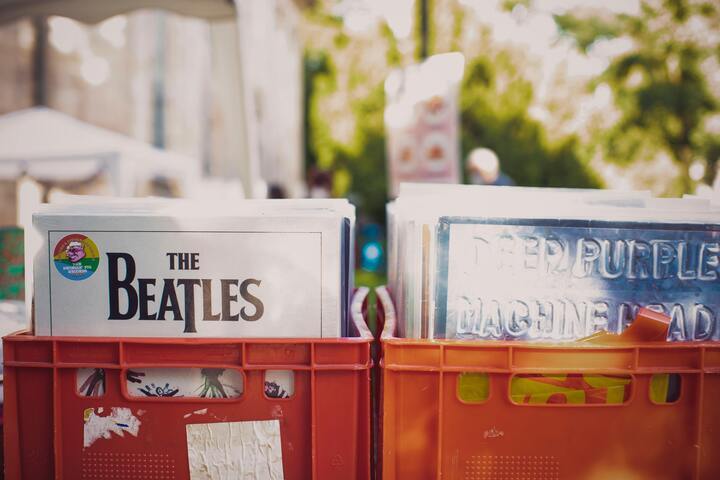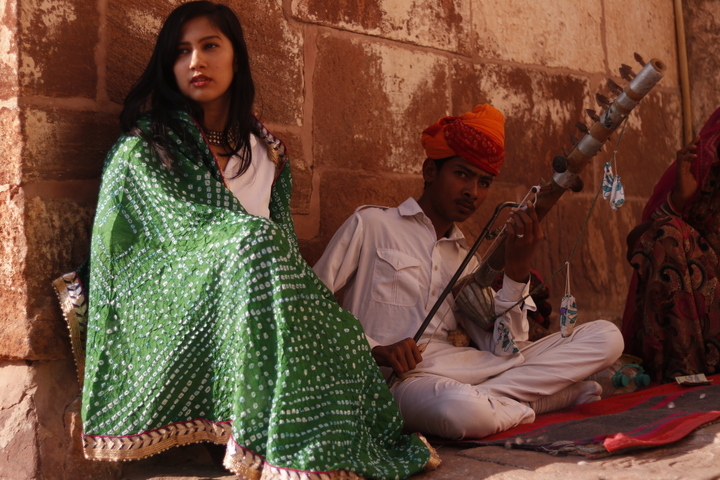‘Blackbird singing in the dead of night
Take these broken wings and learn to fly
All your life
You were only waiting for this moment to arise’
~ Blackbird, Paul McCartney / The Beatles, 1968
Blackbird is a song written and sung by McCartney that whispers hope in its melodic refrain. It was covered by Wafaa and Alaa (featuring Johno) and many other talented musicians in a project curated by Delia Arts Foundation.
Their cover (in Arabic) whispers too of the hope that we have for music to effect social transformation. A big part of that social transformation lies first in the power of creative collaboration. It is worth considering, even for a moment, the scope that music has to change our lives – and how that change starts by working together.
Blackbird’s Meaning
Paul McCartney has sometimes said that Blackbird was about a bird calling to him while he was practicing Transcendental Meditation in India; at other times, he’s said that he wrote it after reading something about escalating race relations in the United States in the spring of 1968.
Most controversially, Charles Manson interpreted the word “rise” throughout the song to call black America to rise against the white oppressors and start a race war. Thereby urging his white followers to commit a series of heinous murders in Los Angeles in 1969 and preemptively kickstart the chaos.
Whatever the meaning, the song has endured thanks to its beautiful calmness and the ability of music not to be dragged into the mud for impure purposes. It makes for a beautiful modern-day anthem for the people of Gaza. For those who know that even in the worst conditions of living, there is still hope.
Blackbird’s Collaboration
 The Delia Arts Foundation offers music programs at the Delia Arts Center in Gaza, and one of their founding principles is based on the idea of music collaboration. Aspiring musicians from conflict zones and marginalized communities such as those in Gaza get together to learn everything from music theory to music production.
The Delia Arts Foundation offers music programs at the Delia Arts Center in Gaza, and one of their founding principles is based on the idea of music collaboration. Aspiring musicians from conflict zones and marginalized communities such as those in Gaza get together to learn everything from music theory to music production.
The joy that the musicians share in learning music together echoes a time when, as teenagers, Paul McCartney and George Harrison would learn to play Bourrée in E Minor by Johann Sebastian Bach to impress girls.
Bourrée is, in fact, the musical inspiration for the song Blackbird. The melody and bass notes are played simultaneously on the upper and lower strings of a lute or classical guitar, which is challenging to master. And what’s also interesting to note is that in McCartney’s version of the song, he employs a finger plucking technique that he attributes to the Scottish folk musician Donovan teaching him to play.
Change through Collaboration
One need only look at children learning to clap hands and sing in a round or unison to appreciate the influential role of music in enhancing social cooperation and empathetic development.
Indeed, many studies have shown that ‘synchronization’ in music (learning to ‘tap,’ ‘swing,’ or ‘sing along’ together) advances social development and interaction by encouraging cooperative behaviour in children. In addition, ongoing facilitated musical group interaction as a child becomes a young adult leads to an increased capacity for emotional empathy.
If you want to teach a child to share, demonstrate it in a song, and a young adults to express themselves, let them start a band with their friends. If you want to bring people together from different walks of life, music is most often the social glue that binds best.
The Power of Music to Effect Social Change
When music is the process, and positive social outcomes like emotional empathy are the result, we understand that this fight for culture and community shouldn’t end in tears or bloodshed. And yet fight we must.
Organizations such as The Delia Arts Foundation work hard to carve out space for musicians in war-torn areas such as Gaza to provide musicians with the chance to connect to get their music out there in time to connect with others.
The hope that is always worth fighting for is that we can continue to make a difference in this way. The hope is that we will one day all live in peace.
Palestinian Music and Social Change
In Palestine, there are ‘ataabas’ that are sung by workers, farmers, and shepherds as a work song – as well as at weddings. There are also ‘Dal’ona’, ‘Mejana’, the ‘Sahja’, and ‘Zaghareet’ that are traditional Palestinian songs that often have no set lyrics – but rather a set rhythm.
Spontaneity and celebration ensue (especially at weddings) as men clap and the women sing – or vice versa. Through this, the fabric of Palestinian culture and society continues to weave itself together over the years and from generation to generation in timeless ways that cannot be silenced by forced oppression.
Palestinian hip hop artists such as DAM, Ramallah Underground, and Ortega have all made far more pointedly political and social statements in their music – no doubt expressing who they are. To be a musician in Palestine means to sing about the land they love and the struggles of living under Israeli occupation.
Mohammad Assaf is another Palestinian pop musician who traveled two days by car from Gaza to Egypt to enter the second season of Arab Idol. He went on to win the show and has since used his music on the international stage to create a sense of unity amongst Palestinians of differing political beliefs.
Listen now to ‘MC Abdul’ (real name Abed Alrahman), a 12-year-old rapper from Gaza who raps in English about peace for Palestine. One cannot ignore the power of music to leapfrog from lute to mic, strumming hopes and spitting truths.
These musicians are reaching out for that emotional empathy that we all crave as human beings, regardless of race, color, creed, or religion. We can all learn a lot from music. But, to do so, we often need more than just a willingness. We need space and opportunities for blackbirds to learn to fly.



